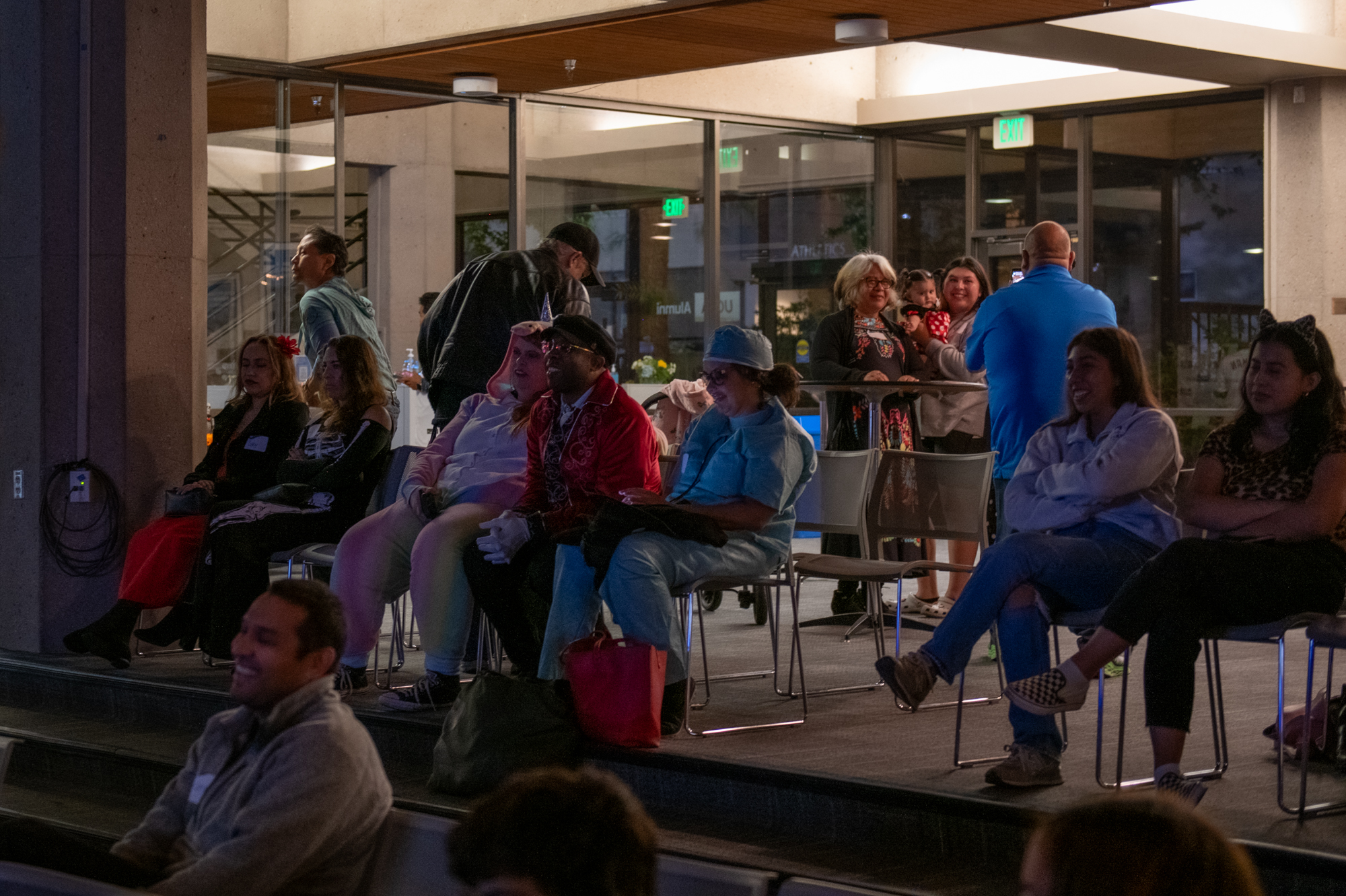As candles illuminated the Día de los Muertos altar, students, alumni and faculty gathered to exchange eerie stories and spooky legends.
Spooky Stories in the Dark, an event hosted by the UCLA Latino Alumni Association, UCLA Black Alumni Association, Academic Advancement Program Alumni Network, Mixed Alumni Association, American Indian Alumni of UCLA, Undocumented Alumni Association of UCLA and Transfer Student Alumni Network, united Bruins for a Halloween and Día de los Muertos celebration Nov. 1 at the James West Alumni Center.
At the event, which honored Latino culture and spooky folklore, participants took photos, learned about campus Latino organizations and told stories following the prompt, “the moment everything changed.”
Día de los Muertos is a celebration often observed in Mexico and other Latin American countries where families welcome spirits of departed loved ones for a short visit with festivities and offerings of food and drink. Juan Pablo Garces Ramirez, the UCLA Latino Alumni Association board member who organized the event, said the holiday celebrates death.
“We view death in a way that it’s welcoming and changing that relationship from a very negative one to a positive one, where it’s something to look forward to,” he said.
Nicole Oliva, a fourth-year psychobiology student, said the holiday was meaningful because it celebrates a spiritual connection with departed loved ones and brings communities together. She added that her family enjoys decorating their altar with photos and her loved ones’ favorite foods.
The event also had an altar for event-goers to bring something to honor a loved one.
“Maybe it’s your grandma and you love the pupusas she would make,” Garces Ramirez said. “You’d literally make some pupusas and put it on there.”
This Día de los Muertos was especially significant for Garces Ramirez because it marked one year since his father’s death, he said.
One by one, audience members went to the front of the room and shared real stories about their dreams of fighting ghosts and encounters with supernatural creatures. While at the front of the room, Garces Ramirez said he encountered a young girl who claimed she could see ghosts and the peculiar events that followed her.
Garces Ramirez, who graduated from UCLA in 2015, said he hopes to use his roles in different alumni associations to empower Latino students. He added that he felt isolated from his Latino heritage when he was a student at UCLA.
“The only Latinos I used to see on campus were people that were doing janitorial services or working in cafeterias,” Garces Ramirez said.
Since Garces Ramirez’s time on campus, UCLA has declared its goal to become a federally designated Hispanic-serving institution by 2025, meaning a quarter of all enrollment must come from people of Latino heritage. He added that UCLA becoming a Hispanic-serving research institution would increase educational opportunities and affirm the experiences of Latino students.
However, groups within UCLA’s Latino population have said these efforts are not fully inclusive, said Daniel Orellana Delgado, co-chair of Unión Centroamericana, an organization seeking to empower Central American students at UCLA.
He added that representing UNICA at this event meant showing that Central American students have a voice and want to be included in conversations of representation.
Orellana Delgado also said that some cultures – like that of Afro-Latino students – are underrepresented in the Latino community and celebrations of the holiday. Many Central American cultures do not celebrate Día de los Muertos, but celebrate Día de los Fieles Difuntos, or All Souls Day, instead, he added.
Though they differ by country, Orellana Delgado said some common customs of celebrating this holiday include visiting the grave sites of loved ones, paying respects and offering flowers in remembrance.
“We are Latino, yes, but we are also diverse and unique in our own ways,” he added.

Despite cultural differences, Garces Ramirez, who was also the event’s emcee, said the event’s purpose was to highlight the beauty of storytelling that hides in each individual by inviting audience members to tell their own spooky stories.
“Stories is universal,” he added. “Everybody has one, everybody is waiting to tell one.”


